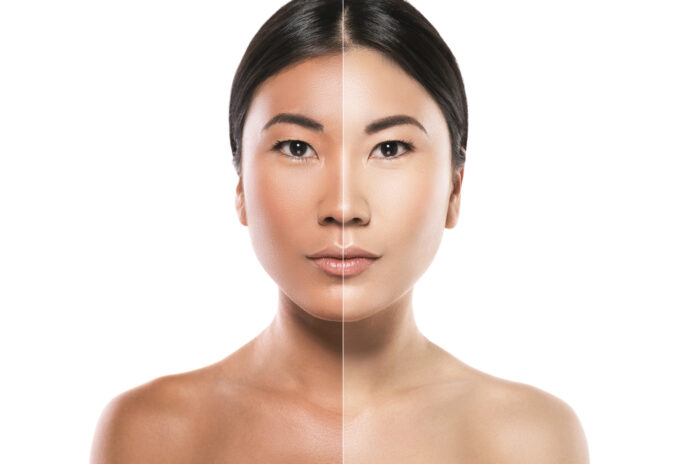Light skin is considered a desirable trait among people with dark skin. As a result, skin lightening is a multi-billion-dollar industry. Black women are especially likely to use harmful products to reduce pigmentation. A new study conducted by Northwestern University researchers and published in the International Journal of Women’s Dermatology, shows many of these women don’t understand the health risks involved.
The Study
Researchers surveyed hundreds of people, a majority of whom were black women, who used skin-lightening products. It found that most weren’t aware that the products contained harmful ingredients like hydroquinone which can cause swelling, skin rashes, and discoloration.
Dr. Roopal Kundu, founder, and director of the Northwestern Medicine Center for Ethnic Skin and Hair, explains more about skin-lightening products and why they are used.
“The vast majority of the time, skin lightening is used to treat medical dermatological disease or post-inflammatory hyperpigmentations. But sometimes it is used in the space of wanting lighter skin and the constructs of beauty compounded by light and dark skin,” Kundu said.
“We’ve done other work in that space trying to understand why people might use these products. It goes back to lighter skin being more aesthetic or considered something of value among certain communities,” she continued.
Colorism as an Issue
People who use skin lighteners report that colorism plays a role. Colorism is a type of inequality that considers lighter skin to be more aesthetically pleasing and socially acceptable among nonwhite people. People with light skin are often perceived as better educated and are more likely to qualify for jobs than dark-skinned applicants.
People with dark skin also experience harsher prison sentences in jail. Other studies have shown health disparities for darker-skinned people. In Hollywood, lighter-skinned actors tend to get more starring roles.
Although colorism is most acutely felt among black people, it is also a factor for Indians and Latinos.
The Dangers of Skin Lightening Products and What Can Be Done
The skin-lightening industry has been targeted for its unsafe ingredients for years. Last year, the U.S. Food and Drug Administration warned consumers about illegally marketed over-the-counter products that contain toxic ingredients and can cause permanent damage over time. However, these products are still widely available online and in stores.
While there may never be such a thing as a safe skin-lightening product, people can reduce the demand by taking steps to eradicate colorism.
Michigan State University professor Ronald Hall has written several articles and books on colorism and is set to deliver the keynote address at the nation’s first-ever virtual Conference on Colorism.

“The one common denominator I can point to: We’re all dominated by Eurocentric power structures which define our ideals,” Hall explains, trying to find a reason behind colorism.
“This is an issue that every African American, every person of color, knows and experiences,” he continues. “But people don’t want to talk about it, they want to pretend it doesn’t exist. So that, in effect, really sustains it. Once you confront it, you can act on it.


